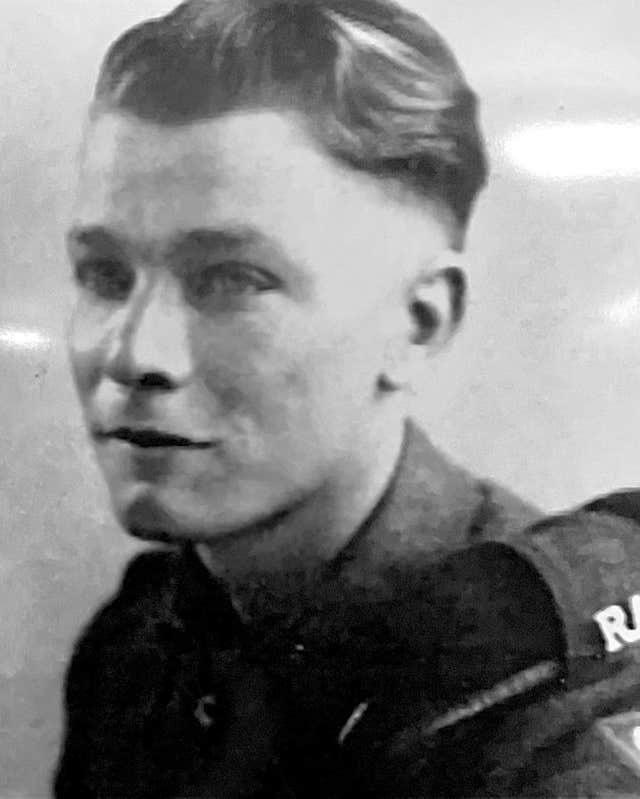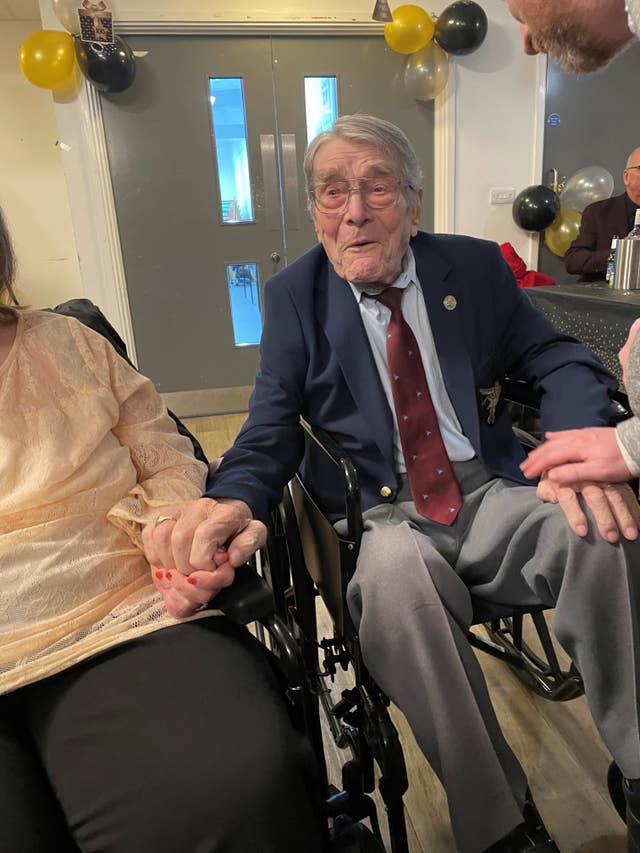Funeral held for ‘respected and loved’ D-Day veteran who has died aged 100
Bill Gladden flew into Normandy in a glider on June 6 1944 and was wounded in the fighting 13 days later.

A funeral has been held for one of Britain’s last D-Day veterans who died aged 100.
Bill Gladden, of Haverhill, Suffolk was 20 years old when he flew into Normandy on a military glider carrying a tank and six motorbikes on June 6 1944.
He survived being shot by machine gun fire from a German tank and spent three years in hospital in the UK.
Mr Gladden had been outside the French village of Ranville, near the strategically important Pegasus Bridge that the 6th Airborne Reconnaissance Regiment was tasked with protecting.

On June 17 1944 he carried two fellow soldiers who were wounded into a barn that was being used as a medical post.
Two days later, he was shot while he was brewing tea, and was carried into the same barn.
He sustained a severe leg injury and was flown back to the UK.
Mr Gladden died on April 24 this year and his funeral took place at West Suffolk Crematorium near Bury St Edmunds on Friday.

A convoy of black cabs from the Taxi Charity for Military Veterans, as well as a number of bikers, escorted the hearse to the crematorium.
Serving soldiers from 2 Para and 3 Para walked ahead of the hearse as it neared the crematorium, together with standard bearers and the Parachute Regiment’s mascot, a pony called Pegasus V.
A Union Flag was draped over Mr Gladden’s coffin, with a red beret and medals displayed on top of it.
Flowers in the hearse spelt out the words “dad” and “Bill”, and a piper played on the approach to the chapel.

The song What Is The Reason? by Dorothy Squires played at the start of the service, before the hymn Old Rugged Cross.
Mr Gladden’s niece, Kaye Thorpe, fought back tears as she read a poem about their loss, and chairman of the Taxi Charity for Military Veterans Colin Mills gave a tribute.
Mr Gladden had been on trips to Normandy and the Netherlands with the Taxi charity, as well as across the UK.
Mr Mills said Mr Gladden, fondly known to members of the group as Uncle Bill, was “respected and loved by everyone at the charity”.
“Bill was full of charm, a real gentleman with a beautiful soft voice who told the most compelling stories, he said.
“He was an accomplished painter – something which he kept hidden from the charity for a long time.
“But as soon as we were made aware of his talents, volunteers inundated him with commissions to paint their pets.
“Bill loved his art and was always very grateful to have the requests to paint and his pictures have gone across the world.”
A picture drawn by Mr Gladden of a military glider was chosen for the front of his order of service.
Later in the service, a video was shown of the veteran singing Scarlet Ribbon – and scarlet ribbons decorated the orders of service.
Mr Mills continued: “In his final days Bill made time to call and thank his friends for all they had done for him.
“Those precious phone calls will never be forgotten by any of us.”
Mr Gladden had celebrated his 100th birthday in January, with his family throwing him a surprise party.
Ms Thorpe said at the time that Mr Gladden, who is survived by his daughter, Linda Durrant, was a “legend”.
Mr Gladden, who grew up in Woolwich, south-east London, had volunteered for airborne duties and flew into Normandy from the former RAF Tarrant Rushton in Dorset.
Ms Thorpe said he was in the building trade before the war and subsequently worked in various jobs in factories and in payroll.
The Last Post was played towards the end of his funeral service, and the final song was When They Sound The Last All Clear by Vera Lynn.





